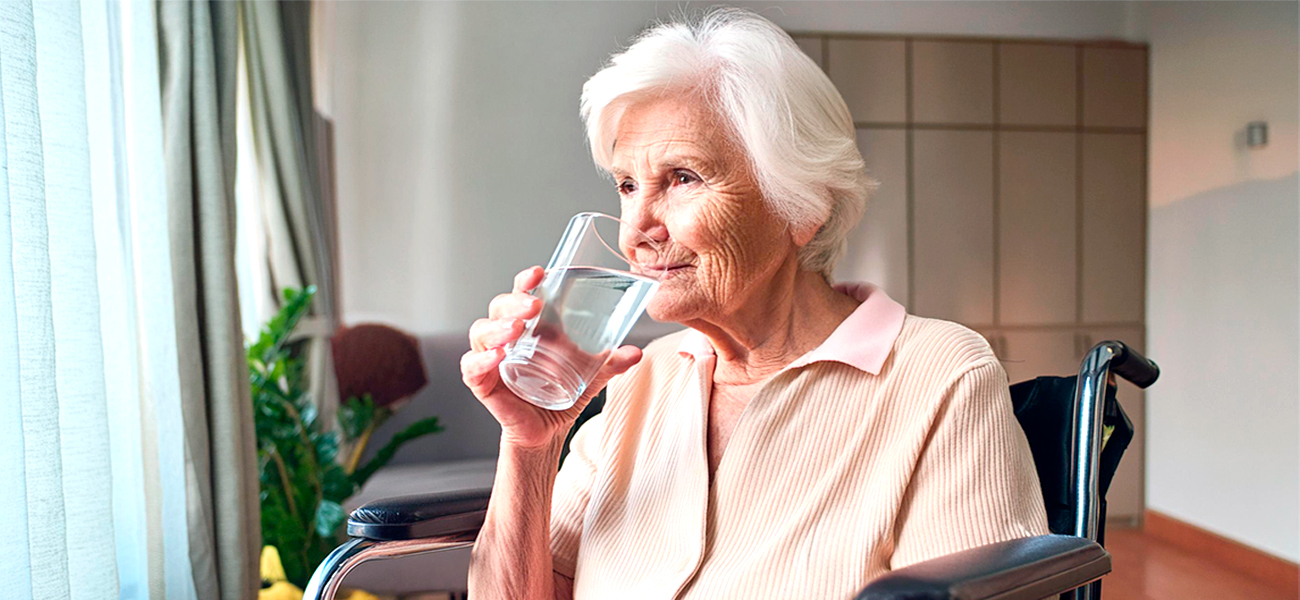The adult human body is made up of between 50 to 65% water and so adequate hydration is essential for it to properly function. Water is present throughout the body including, inside most cells, in the intercellular spaces, in the blood and in bodily fluids that are of enormous importance to regulate our body functions, such as sweat, saliva and tears.
Water therefore plays a key role in keeping a wide range of systems functioning, contributing to the regulation of body temperature, the hydration and elasticity of the skin, the proper digestion of food, and the lubrication of our body’s joints and organs.
Throughout the day, people lose water continuously in a variety of ways. Activities as basic as breathing, perspiration, urination and bowel movements result in daily losses of between 2 and 2.5 litres of water. This is also accompanied by the loss of electrolytes and minerals such as calcium, sodium and fluoride; essential micronutrients present in the structure of many tissues.
If the body does not receive sufficient water to compensate for these losses, it can compensate by transferring internal water from our cells into our blood and if we do not replenish these levels, we can suffer from the signs of dehydration, which is defined as an acute deficit in the body’s water level that leads to a disruption of metabolic processes.
In situations of dehydration, the water level in the blood decreases, leading to circulatory difficulties and organs and muscles do not receive sufficient nutrients and oxygen to continue to function normally.
In cases of mild dehydration, symptoms include thirst, headaches, feelings of weakness, dizziness and fatigue, and in some cases drowsiness may also occur. In situations of moderate dehydration, there is a feeling of dry mouth, increased pulse, loss of skin elasticity, and decreased urine volume.
But in severe dehydration, symptoms worsen and may include increased heart rate and respiratory rate, hypotension, lack of urine, weakness, muscle spasms, vomiting, and even altered mental status and delirium.
We must be very aware that dehydration is one of the frequent causes of hospitalisation in people over 65 years of age. Although there is a natural age-related decrease in the sensation of thirst, situations of dependency, mobility problems, visual difficulties and cognitive alterations often mean that elderly people, especially those living in nursing homes, do not drink enough water.
On the other hand, disorders such as dysphagia or difficulty in swallowing, or xerostomia or dry mouth, which is often due to the side effects of pharmacological treatments prescribed to residents, can be a contributing factor in the difficulty in maintaining optimal hydration levels among the elderly.
It is therefore essential to drink between 2 and 3 litres of water a day, as well as to replenish essential nutrients for the correct functioning of the organism, and for this it is essential to have a sufficient supply through the intake of drinks and food. Drinks provide around 75-80% of the water needed, while the remaining 20-25% comes from food.
To achieve sufficient water intake by older people, measures can be taken such as offering fluids routinely throughout the day, ensuring water intake with meals, accompanying medication with at least 180 millilitres of water, and avoiding diuretics as much as possible.
Especially during hot seasons such as summer, it is also important to adopt some preventive measures to avoid dehydration, such as limiting exposure to sunlight, especially during the peak hours of the day, and protecting oneself from the sun with items that avoid direct contact, such as hats or parasols.

